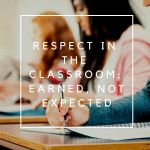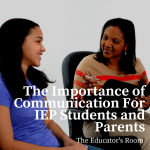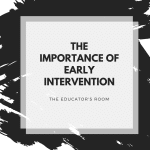Mister Rogers and his philosophy of loving our neighbors as they are has gained momentum over the past year, especially since the release of the biographical documentary film Won’t You Be My Neighbor? in 2018. What’s more, the trailer for the film “A Beautiful Day In The Neighborhood” starring Tom Hanks as Fred Rogers was released this summer, reviving enthusiasm for Mr. Rogers fans.
Mr. Rogers has faced criticism for being “too kind” or “soft.” In fact, some have gone so far as to attribute the “selfishness” of “Generation X” to Mr. Rogers’ outspoken belief that everyone is unique, special, and valuable just as they are. The documentary film features FOX News clips stating “the narcissistic society [Mr. Rogers] gave birth to because he told everyone they’re important” made him “an evil, evil man” who “ruined a generation of kids.”
This criticism of “softness” when working with youth is not limited to Mr. Rogers’ Neighborhood. And while there has been a mind shift in teacher training from reactive to proactive discipline with an emphasis on positive relationship building between and among teachers and students, these ideals face scrutiny. The worry that “an expression of care every day to each child to help him realize he is unique,” as Mr. Rogers practiced and preached, is “damaging” or “weakening” our children is still felt in schools today. Can students truly learn and grow in accountability and preparation for the “real world” in such a forgiving and caring environment as Mr. Rogers’ Neighborhood, critics challenge? However, science says “yes.”
Research in neuroscience suggests the lessons taught in The Neighborhood out of “an abiding interest in children,” and unconditional love does, in fact, reap benefits for children in the future. The concepts of acceptance, simplicity, conflict, and emotion are highlighted in Mr. Rogers’ Neighborhood; and, while they may disturb comfort zones and status quo for some, there is a method behind the kindness madness.
Acceptance
Mr. Rogers taught through word, deed, and song, capturing the hearts of millions of children. While Mr. Rogers sang “I like you as you are” and “I have always wanted to have a neighbor just like you,” children heard and understood what Mr. Rogers longed for them to receive: “an expression of care every day to each child to help him realize he is unique.” While skeptics suggest this message sets children up for difficulty handling challenges or adversity in their futures, The National Commission on Social, Emotional, and Academic Development has released studies supporting such overt, unwavering acceptance. “The brain develops differently based on opportunities to engage actively and safely with rich and meaningful environments,” the report states. The impact of “warm, sensitive relationships” and “healthy early care environments [featuring] small ratios of children to adults so that interpersonal interactions are maximized” has a significantly positive impact on the infant brain, laying a foundation for intelligible, healthy, productive future decisions. So, while we may feel that the message of “I like you as you are” is weakening our youth, it is, in fact, strengthening. When Mr. Rogers stated, “I don’t think anyone can grow unless he is really and truly accepted as exactly who he is,” this statement was more than an opinion; it’s backed by science. Our brains are wired for connection with others. You can rest assured that boldly loving your children and students and letting them know, then, is not a disservice but a responsibility and investment in their futures.
Simplicity
Morgan Neville directed the 2017 documentary film Won’t You Be My Neighbor? which emphasized the impact Mr. Rogers had on television viewers young and old. “If you take all the elements that make good television and do the exact opposite, you have Mister Rogers’ Neighborhood. Low production values, simple set, an unlikely star–yet it worked because he was saying something really important,” Neville shares. In the hustle and bustle of the world, we can forget the power of simplicity: making a connection, taking a break, or enjoying the silence. Meditation has grown in popularity in school settings out of the research-based realization that taking intentional time for quiet in the midst of the busy school day has neuroanatomical benefits.
[bctt tweet=”In the hustle and bustle of the world, we can forget the power of simplicity: making a connection, taking a break, or enjoying the silence.” username=””]
Researchers from John Hopkins University found “mindful meditation can help ease psychological stresses like anxiety, depression, and pain.” Amidst the enthusiasm for differentiation, high levels of engagement, and rigor in our schools, the value of silence or breaks from the stimulation can be overlooked. We experience this simplicity of time and space in Mr. Rogers’ Neighborhood. “I think silence is one of the greatest gifts we have,” Mr. Rogers shared. We know an unsettled brain cannot learn. When we examine opportunities for silence and simplicity in our classrooms, we can take a tip from The Neighborhood: “There’s a lot of slow space. There’s no wasted space.”
Conflict
“When you have diverse people with varying opinions, you have conflict. And that’s what happens in The Neighborhood: real conflict,” Jungle Li, co-founder of Fred Rogers Center shares in Won’t You Be My Neighbor? Mr. Rogers’ Neighborhood was known for addressing difficult interpersonal and worldly concerns. From the attacks of 9/11 to the integration of swimming pools to assassinations, Mr. Rodgers’ did not shy away from conflict. These issues were discussed openly with childlike wonder. Research conducted by the University of Virginia suggests “the way kids handle conflict with peers may have major long-term health effects.” This research even implies “schoolyard conflicts may be tied to early aging and other issues–even tumors, arthritis, and cancer–later in life.”
Conflict viewed as a learning opportunity rather than a punitive experience is not dismissive but rather proactive. “Getting along with peers will make or break you,” Professor of Psychology Joseph Allen of U-Va. states. Amy Joyce reflects in response to these studies in her article published in The Washington Post in 2018, “Schoolyard conflicts may be linked to serious health problems later in life, research shows,” noticing “parents should model good conflict management and teach their children they can still remain friends with people they disagree with.” Allen adds, “Let them disagree with you, but rein in their hostile behavior.” Opportunities for this teaching are present both in Mr. Rogers’ Neighborhood and in our schools.
Emotion
Feelings can be difficult for people to discuss. In avoidance of perceived weakness, some of us have a tendency to brush them to the side or ignore feelings with the intent of displaying resiliency or grit. Mr. Rogers’ Neighborhood challenges this belief; and neuroscience does, too. In Mr. Rogers’ words, “Feelings and how to respond to them is what I feel is the most important task in the world.” Research agrees. In January of 2019 NPR published an article “Got Anger? Try Naming It To Tame It,” reflecting on psychological research suggesting the positive impact of discussing, naming, and processing emotions. Research shows what you are feeling, for example, “I’m feeling frustrated,” leads to a lower likelihood of someone “shout[ing] or hit[ting] someone who has hurt them. They are also less likely to binge drink when stressed.” Identifying these feelings is defined in the article as “emotional granularity,” and it is noted, “people diagnosed with a major depressive disorder are more likely to have low emotional granularity compared to healthy adults.” This ability to switch from the amygdala, the emotional response system of the brain, to the pre-frontal cortex where logical thinking and reasoning takes place is a skill that requires practice and attention. So while brushing emotion to the side may feel like the rough and tough option, true resiliency is developed when we acknowledge and work through these feelings.
When we disrupt the status quo, we find that “there are a lot of people out there like Fred Rogers. A lot more than we’d like to believe.” So, to all the parents, caregivers, educators, and influencers on youth keep up the relentless loving. You are building a world of resilience through kindness.






